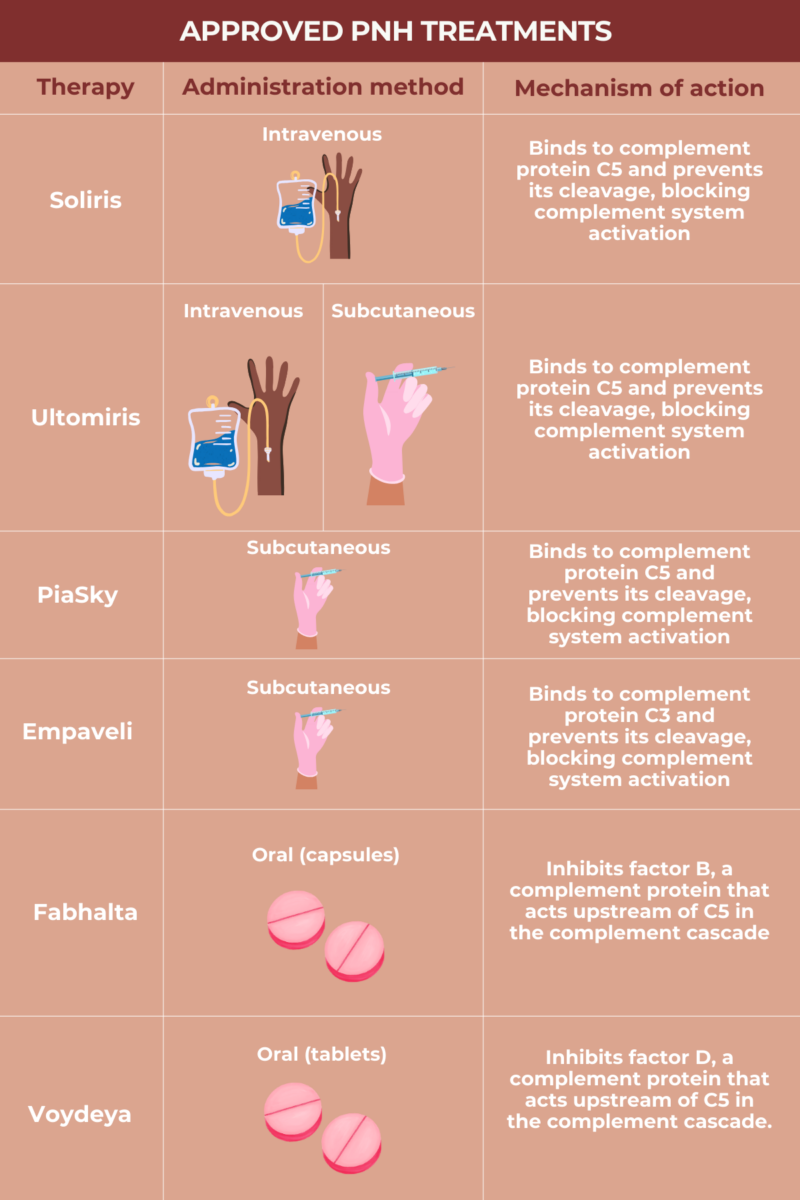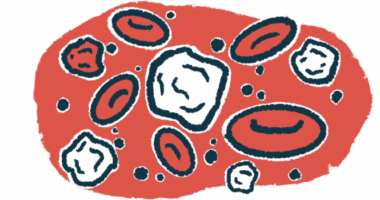FAQs about PNH treatment
Symptoms of paroxysmal nocturnal hemoglobinuria (PNH), such as anemia and fatigue, are driven by the destruction of blood cells. Approved treatments for PNH are designed to prevent this, thereby easing symptoms and reducing the risks of potentially life-threatening complications.
The only truly curative treatment for paroxysmal nocturnal hemoglobinuria (PNH) is a hematopoietic stem cell transplant (HSCT), a procedure that aims to replace the faulty stem cells in a person’s bone marrow with healthy ones. However, since HSCT is an invasive and relatively risky procedure, it is not usually considered as a first-line treatment for PNH. Instead, medications that can substantially reduce the risk of disease complications and improve patients’ life expectancy are usually the preferred first-line treatments. HSCT may be used in cases where these medicines are not available or in patients with severe disease that don’t respond well to them.
While many health insurers provide coverage for the treatment of paroxysmal nocturnal hemoglobinuria (PNH), specific policies vary from insurer to insurer, so it’s always recommended that patients check with their specific insurance provider to understand what treatments are covered. Support programs are available to help people with PNH pay for treatment. For example, the National Organization for Rare Disorders (NORD) offers assistance programs for PNH patients with or without health insurance.
In paroxysmal nocturnal hemoglobinuria (PNH), a group of immune proteins that make up the complement cascade become activated and destroy blood cells. Complement inhibitors are medicines that can block the activation of the complement system, thus preventing blood cell destruction in PNH. Five such therapies are approved to treat PNH in the U.S.: Soliris (eculizumab), Ultomiris (ravulizumab-cwvz), Empaveli (pegcetacoplan), Fabhalta (iptacopan), and Voydeya (danicopan).
Complement-inhibiting therapies, including Soliris (eculizumab), Ultomiris (ravulizumab-cwvz), and Empaveli (pegcetacoplan), are the standard-of-care for paroxysmal nocturnal hemoglobinuria (PNH). No clinical trials directly compared the effectiveness of the three approved therapies, but one study suggested Empaveli was superior to Soliris at stabilizing or increasing hemoglobin levels. Specific responses to therapies and side effect profiles may vary from person to person, however, so it’s always recommended patients talk to their care team about what medication is best for them
Related Articles

 Fact-checked by
Fact-checked by 



